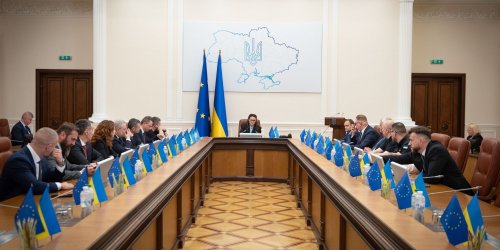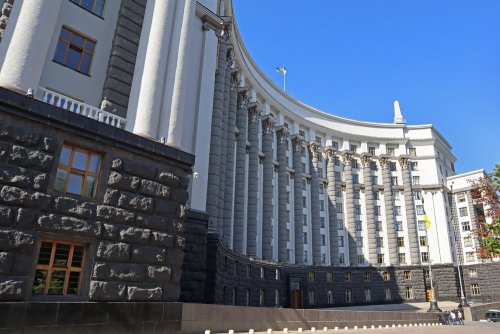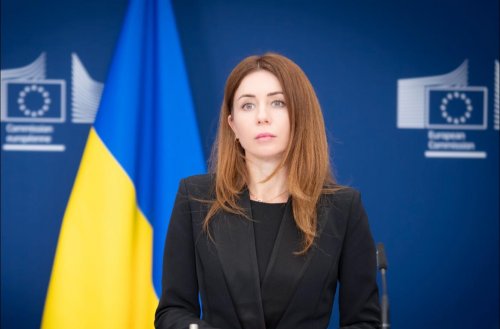The formality in the implementation of the state policy regarding the extended responsibility of the producer, the insufficient regulatory and legal framework, the lack of clear and understandable rules for market players cause the transfer of operations for the collection and processing of used products to the shadow sector of the Ukrainian economy.
The Association of Environmental Professionals (PAEW) drew attention to the problem with the introduction of EPR in Ukraine.
Its specialists noted that currently the expanded responsibility of the producer is only indicated in the framework of the Law of Ukraine "On Waste Management" and the state's approach to this issue is currently purely formal.
To understand the essence of the concept, which is new for Ukraine, let's find out what EPR is, when this concept arose and what are the goals of its implementation.
What is extended producer responsibility (EPR)
Article 1 of the European Integration Law No. 2320-IX "On Waste Management", which entered into force on July 9 of last year, contains the following definition of the EPR: "Extended producer responsibility is a set of economic, financial, administrative and organizational measures to ensure the responsibility of producers of certain types of products for management of the waste stage in the product life cycle".
In simple terms, it is a waste management tool, which means that manufacturers are responsible for their products even after the products have been used, expired or no longer needed by the consumer.
This responsibility includes in particular the collection, sorting and preparation of products for further processing or recovery.
Article 10 of the same law establishes the EP for producers of products, as a result of consumption/use of which waste is generated:
- packaging;
- electrical and electronic equipment;
- batteries and accumulators;
- vehicles removed from service;
- lubricant (oil);
- tires;
- textiles.
Please note that EPR also applies to the packaging of goods. All links of production and sales of packaging (both manufacturers and importers and retailers) assume part of the responsibility for the impact of packaging on the environment.
This applies both to the manufacturing processes of packaging and its disposal after use. Thus, manufacturers take responsibility already at the stage of development of their products and their packaging in order to further minimize the impact on the environment from their use and processing.
What are the goals of the introduction of EPR
- Provision of incentives for the use of more ecological solutions in the creation of products.
- Promotion of separate collection of waste and its processing.
- Reducing the level of waste disposal at landfills and developing recycling and recovery channels.
- Creation of new processing methods and their distribution in society.
When the concept of extended producer responsibility arose
The policy of extended liability of the manufacturer was first applied in the early 90s in some countries of the European Union. First of all, it concerned packaging waste. Later, this practice spread to other EU countries and beyond.
The use of EPR has helped to significantly increase the indicators of waste processing and achieve significant savings in public costs in the field of waste management. Specialists claim that the introduction of extended producer responsibility has helped to make the field of waste management independent of macroeconomic fluctuations and public finances.
To date, in Europe, 30 countries have implemented EPR into their legislation and established branch organizations of extended producer responsibility (EPR).
What by-laws in Ukraine regulate the EPR
As of today, of the 7 categories of manufacturers for which the EPR is provided, the Ministry of Environmental Protection and Natural Resources of Ukraine has developed draft laws for only two:
- Draft Law No. 10066 dated September 18, 2023 "On Packaging and Packaging Waste" is currently being reviewed by the specialized committee.
- Draft Law No. 2350 dated October 30, 2019 "On waste electrical and electronic equipment" has been withdrawn from consideration at this time. No other project regarding this area of regulation is currently registered.
Regarding the waste of vehicles removed from operation, tires, textiles, the corresponding projects were not developed at all.
How extended producer responsibility works in Ukraine
The experts of the PAEW Association analyzed how the provisions of the EPR are applied on the example of handling used lubricants (oils). They said that this area is regulated by the Resolution of the Cabinet of Ministers of Ukraine dated December 17, 2012 No. 1221 "Some issues of collection, transportation, storage, processing (processing), disposal and/or disposal of used lubricants (oils)".
Specialists found out that a number of requirements of this resolution simply do not work:
- The State Fiscal Service and the State Environmental Inspection did not provide a permanent exchange of information on the volumes of sales of imported and/or produced lubricants (oils) on the territory of Ukraine, their circulation, collection and processing (processing), disposal and/or disposal.
- Since 2018, the control powers of the State Environmental Inspection have been canceled at checkpoints across the state border, as well as in the area of activity of customs of destination and departure, that is, it cannot fully perform its functions assigned to it by this resolution.
- Since 2018, the initiative of the Ministry of Environment to implement an experimental project on the regulation of collection, transportation, storage, processing, disposal and disposal of used lubricants (oils) has not been implemented. It provided for the implementation of the Temporary Order for the period from September 1, 2018 to December 31, 2019, which would regulate the current system of handling used lubricants (oils), as well as create conditions for the legalization of operations with hazardous waste that take place in the shadow sector of the economy.
What problems do experts see in the implementation of extended producer responsibility
PAEW listed the following difficulties:
- The authorized central authorities do not implement specific state policies. As a result, the state does not have objective macroeconomic indicators and does not formulate an adequate economic policy.
- National production is leveled off. In this example, these are collection points, carriers, processors of used lubricants. The necessary infrastructure is not being formed, including social
- Formalism in state regulation deforms consciousness at all levels – from an entrepreneur to a civil servant and a simple consumer.
As EcoPolitic reported earlier, in April 2023 the Ministry of Environment has finished its work on the draft law "On packaging and packaging waste", which regulates the concept of extended producer responsibility (EPR). September 18 registered in the Verkhovna Rada.
In December 2023 the ministry has completed the development of a draft law that introduces EPR for electronics.





